Below you will find a mix of guides, brochures, and infographics that can be downloaded as free resources.
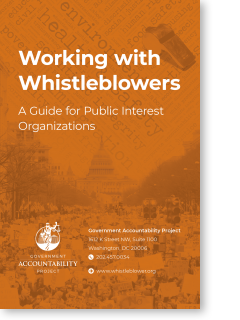
This resource was developed to support advocacy groups that, in the course of working on issues across the social, economic, and environmental justice spectrums, might encounter employees who want to share important information to advance accountability. The free guide offers practical guidance to help them protect and support potential whistleblowers while ensuring they are not inadvertently exposed to retaliation.
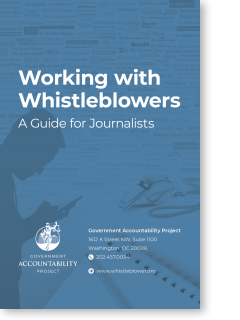
The partnership between whistleblowers and journalists is essential to a functioning democracy. The power of whistleblowers to hold institutions and leaders accountable often depends on the critical work of journalists who verify whistleblowers’ disclosures and bring them to the public. This free guide seeks to empower and protect journalists and their whistleblower sources by sharing critical information about their shared goals, responsibilities, and challenges.
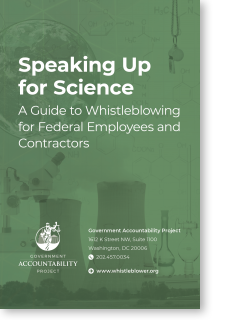
Science whistleblowers have historically functioned as one of the most powerful vehicles for exposing environmental, health, and safety risks, research censorship, gross mismanagement, and other abuses that undermine the missions of federal agencies to protect the public interest. This free guide seeks to empower and protect federal employees of conscience by offering guidance about their legal rights to blow the whistle and practical advice for making disclosures about wrongdoing in the safest and most effective ways possible.
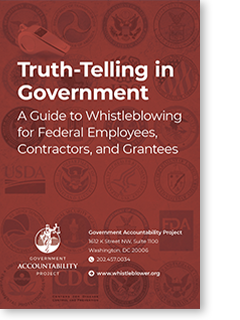
Our government’s integrity depends on the commitment and effort of millions of federal employees, contractors and grantees around the world. Those same workers are in the best position to learn when decisions and actions deviate from the core mission and responsibilities of government, be it through corruption, failing to comply with laws and regulations, wasting taxpayer money, jeopardizing public health and safety, or otherwise abusing the public trust. Government Accountability Project’s newest resource seeks to help federal government employees, contractors, and grantees–across all agencies and issues—who have discovered serious abuses of public trust and need guidance about their rights, risks, and options. Whether you have yet to raise concerns or have already made disclosures, this guide is the first step for navigating the complex path of whistleblowing safely and effectively.

The mission of the Food Integrity Campaign—a program of Government Accountability Project —is to enhance overall food integrity by protecting the rights of employees in the food industry and government who speak out against unsafe, unhealthy and inhumane practices. This brochure helps provide an introduction to the Food Integrity Campaign, including an overview of key issue areas and services provided, plus engaging illustrations adapted from the FIC animated video short in the style of a comic book.
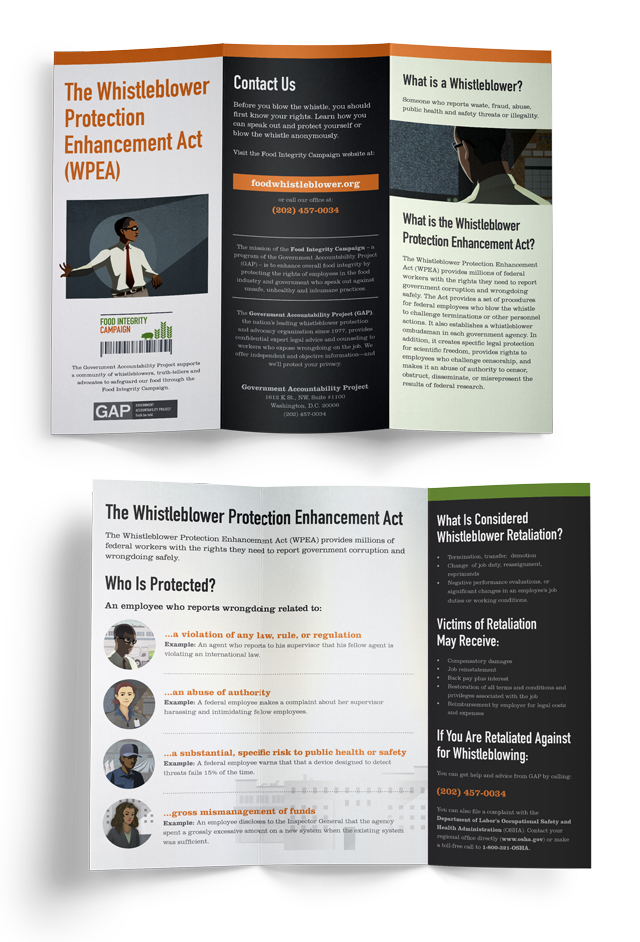
The Whistleblower Protection Enhancement Act (WPEA) provides millions of federal workers with the rights they need to report government corruption and wrongdoing safely. This brochure provides an overview to the WPEA, an outline of who is protected by the WPEA, and contact information for anyone with questions or seeking help.
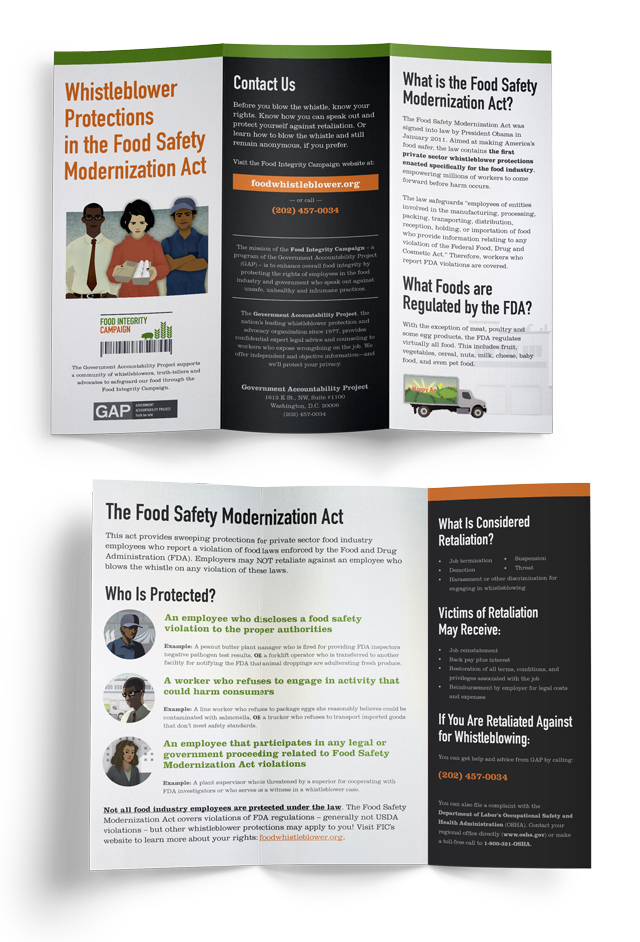
The FSMA act provides sweeping protections for private sector food industry employees who report a violation of food laws enforced by the Food and Drug Administration (FDA). Employers may NOT retaliate against an employee who blows the whistle on any violation of these laws. This brochure outlines who is protected, what is considered employer retaliation, and contact information for anyone seeking help or more information.
In 2015, FIC teamed up with The Other 98% to launch the WTFHormel campaign, including a composite interacive infographic that shows the perilous impacts that high-speed hog inspection has from farm to fork. That includes its harmful effects on the environment, public health, animal welfare, and worker safety. The campaign has eneded, however many of the same issues persist. Check out the PDF version of the infographic here.